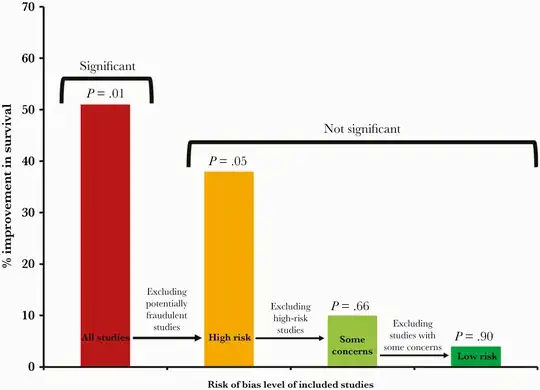This recent Cochrane review did consider the Behera study mentioned by the OP, but rejected it on the grounds that it wasn't an RCT (randomised controlled trial), along with eight other studies for the same reason.
Out of interest, there are other reviews of ivermectin for covid. This one is from last year, and this one is very recent. Both found significant issues in some of the studies they considered.
The first two reviews I linked to were mentioned by @jeffronicus in their excellent answer. However, the third wasn't, and maybe the most relevant finding in that review was how strongly the effect of ivermectin decreased as more problematic studies were excluded from the meta-analysis.
See Figure 1 here, which I've also posted below. The effect of ivermectin is strong when all studies are included, but the p-value is very low (0.01). However, when studies with any degree of concern are excluded, the effect of ivermectin is marginal (a 4% increase in terms of improvement in survival, i.e. 1.04, 95% CI, 0.56–1.66; p = 0.90).
Edit: there is also the PRINCIPLE trial, run by the University of Oxford. They are currently investigating ivermectin for covid treatment. For context, they're also testing favipiravir and the "usual standard of NHS care". They've already looked at inhaled budesonide, azithromycin, doxycycline and colchicine, of which only budesonide showed any benefit ("shortens recovery time by a median of three days in patients with COVID-19 who are at higher risk of more severe illness and are treated in the community").
Mentioning this as ivermectin results will presumably be released in the near future.

